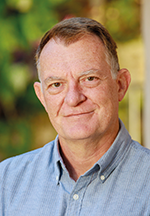

I awoke to exciting news during the month of February: The City of Cape Town announced that it was going to pay homeowners for any excess energy generated from solar installations. The mayor has explicitly stated that the city would buy as much solar as households and businesses can supply.
This plan will hopefully add as much as 650 MW to the Cape Town grid for its residents and businesses to use, which should see loadshedding in that region drastically reduced in the next few years. Everyone is in agreement that loadshedding has had a disastrous effect on the local economy, and this move is a huge step in the right direction.
This welcome news also introduces my next point. In a report that I recently read on the state of education in South Africa after the matric results had been released, one of the reasons given for the poor matric results in poorer regions and districts was loadshedding. The lack of electricity not only affects the day-to-day class activities, but also impacts on student’s ability to study away from school. The current government has done very little to curb the rampant effect that loadshedding has had on education in the last 10 years.
Reports issued by the Department of Education are quick to point out that pass rates have increased year-on-year, with the 2023 matric cohort obtaining an 82,9% pass rate. Opposition parties, meanwhile, state the complete opposite and paint a gloomy picture of pass rates hovering around the 55% mark. I do not believe that either of these parties are being genuine.
Firstly, the local government base their pass rates on the students who actually sat the exams. This does not consider students who were forced to deregister from the exam session before it began to try to improve the overall rate.
On the other hand, opposition parties base their statistics on students who started grade one 12 years previously. This also does not take into account students who have left the school system for legitimate reasons: emmigration, leaving school early to work or to take up a trade as an apprentice, etc. I know many students leave school after grade 9 to take up training at vocational colleges.
I believe a fairer measurement would be to take into account only students who started the 2023 year in matric against those of them that passed the exams. Based on this metric the pass rate drops back to around 81%. This I find worrying, as students entering matric should all be writing the exams.
For me, however, a more worrying statistic is the very low percentage of students studying, and passing, the STEM subjects at school level. Although the pass rate for maths may be acceptable for the Department of Education, the proportion of the matric class that writes maths (and physics) has been decreasing since 2009. Recently, South Africa once again recorded the lowest maths scores globally.
For the past three years, only a third of students wrote the NSC maths exam. In 2021 and 2022, 80% of them did not pass the subject with 50% or more! Even fewer attained the 60% minimum needed to get into a science, technology or engineering degree. In fact, in 2021, only 13% of students attained higher than 60% for maths.
What this country is sorely lacking is engineers and technologists; people who can literally get their hands dirty and build the country. Having a large proportion of lawyers, politicians, and business executives is great, but eventually there will be nothing for them to govern if we have no technical people to actually build the infrastructure the country needs.
South Africa needs to promote STEM subjects, and realise how important they are for the longevity of any emerging economy.
| Tel: | +27 11 543 5800 |
| Email: | [email protected] |
| www: | www.technews.co.za |
| Articles: | More information and articles about Technews Publishing |

© Technews Publishing (Pty) Ltd | All Rights Reserved